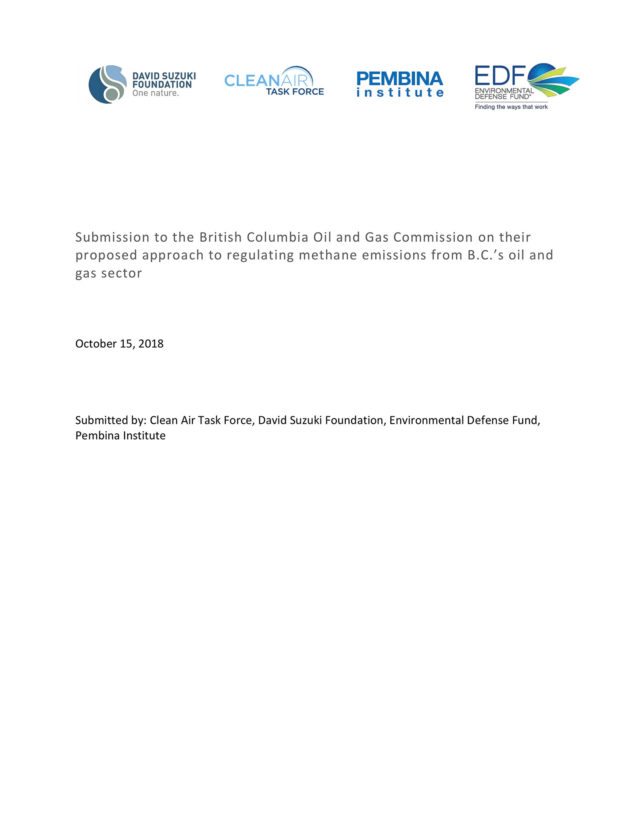Submission to the British Columbia Oil and Gas Commission on their Proposed Approach to Regulating Methane Emissions from B.C.’s Oil and Gas Sector
Published by:
David Suzuki Foundation and partners
Partners:
Pembina Institute,
Clean Air Task Force,
Environmental Defense Fund
Climate solutions methane pollution, British Columbia, energy, greenhouse gas emissions, industry, climate change, fossil fuels
Comments from the David Suzuki Foundation, Pembina Institute, Clean Air Task Force and Environmental Defense Fund on the B.C. Oil and Gas Commission’s proposed approach for regulating methane from oil and gas facilities.
The authors urge the BCOGC to strengthen its proposed approach for regulating methane from oil and gas facilities. The BCOGC proposal falls far short of requiring leading, cost-effective, feasible measures that have been adopted by multiple jurisdictions in North America. Implementation of such “best practices” by British Columbia is essential to the province being able to meet its greenhouse gas target of reducing its 2007 emissions by 40 per cent by 2030. Methane regulations are highly cost effective, especially in gas-rich areas such as British Columbia, where operators can sell or reuse captured natural gas.
There are three simple improvements that the BCOGC can make that will significantly strengthen the proposal:
- require frequent inspections to detect leaks at all production facilities, other than stand-alone wellheads, as well as processing and compression facilities;
- impose strict limits on tank venting; and
- require controls of existing pneumatic pumps.
See also our comments on the B.C. Oil and Gas Commission’s November 15 consultation draft methane regulations.
